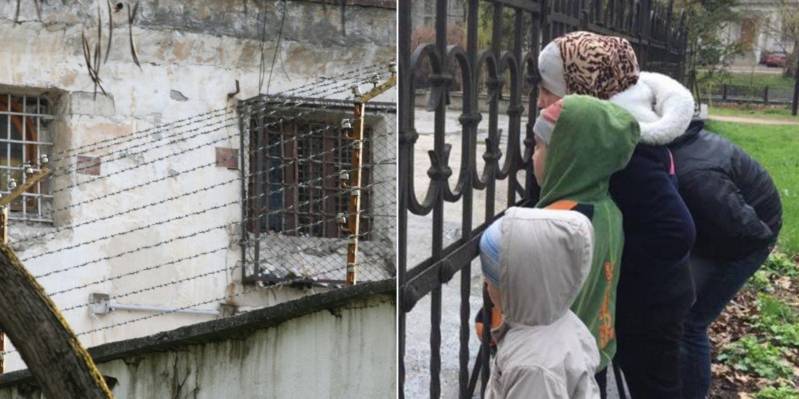Coronavirus death trap for Ukrainian political prisoners in occupied Crimea and Russia

Russia has banned any visits from family members to Crimean Tatar and other Ukrainian political prisoners held in SIZO [detention prisons] in occupied Crimea and Russia, claiming that this is to prevent the spread of coronavirus. It is, however, continuing to hold even gravely ill political prisoners in overcrowded and grossly unsanitary conditions, despite the lack of any grounds for their imprisonment.
With typical brutality, no warning of the ban was given, and Ayshe Asanova was turned away at the doors of the SIZO in Rostov [Russia] when she came to see her husband, civic activist and journalist, Marlen Asanov. She is also facing prosecution quite literally for holding up a piece of paper at the end of the court hearing on 17 March when she held up the following message to her husband: “I need you like the air I breathe”. Court guard Mikhail Chernovol decided to issue an administrative protocol, claiming that this simple message of love constituted inadmissible communication with a defendant. She now faces a magistrate court hearing and a likely fine.
While any penitentiary service must take precautionary measures in view of the coronavirus pandemic, the abrupt ban on visits without any obvious grounds or testing does not seem particularly warranted. The ban does not apply to the men’s lawyers, and open court hearings have continued in the ‘trial’ of Asanov and seven other Crimean Tatar civic activists and journalists, even when some of the men had fevers and evidently needed, but did not receive, medical treatment.
It is possible that the penitentiary service are looking after their own personnel, but all prisoners held in the SIZO in occupied Simferopol and those in Rostov in Russia are held in conditions that are equivalent to torture. The men are deprived of adequate medical treatment and held in cells which are filthy, stuffy and so overcrowded that men have to take turns sleeping on the same bunks. It is easy to imagine how swiftly the coronavirus would spread in such conditions. Some of the political prisoners, like 58-year-old Dzhemil Gafarov, have medical conditions that should have prevented them ever being placed in detention, and they are now in even greater danger.
At present 35 Crimean political prisoners are held in two Rostov SIZO. All are facing charges or are awaiting appeals against politically motivated sentences on charges linked with unproven involvement in the peaceful Hizb ut-Tahrir party which is legal in Ukraine and most countries. Russia is the only country in the world to have labelled Hizb ut-Tahrir ‘terrorist’ and has never provided any good reason. With respect to occupied Crimea, it is very obviously using these ‘terrorism trials’ as a weapon against civic activists and journalists, particularly from the civic initiative Crimean Solidarity which provides support to political prisoners and their families, and also reports on political repression in occupied Crimea.
There are also a large number of Crimean Tatar and other Ukrainian political prisoners held in the Simferopol SIZO in occupied Crimea where the conditions are at least as bad.
The issue in all of these cases is not merely that these men have not been convicted of a crime. In the case of virtually all of the Ukrainian political prisoners, they are not even accused of anything which a law-based country would regard as a crime. All of the Crimean Tatars facing Hizb ut-Tahrir charges have been targeted for their faith and / or civic activism, while 48-year-old Jehovah’s Witness Serhiy Filatov was openly sentenced to six years’ imprisonment (and is now in the Simferopol SIZO, awaiting appeal) from prayers in his own home. Where, as in the case of Ukrainian activist Oleh Prykhodko, there are ‘real charges’, there is literally no evidence at all to back them.





